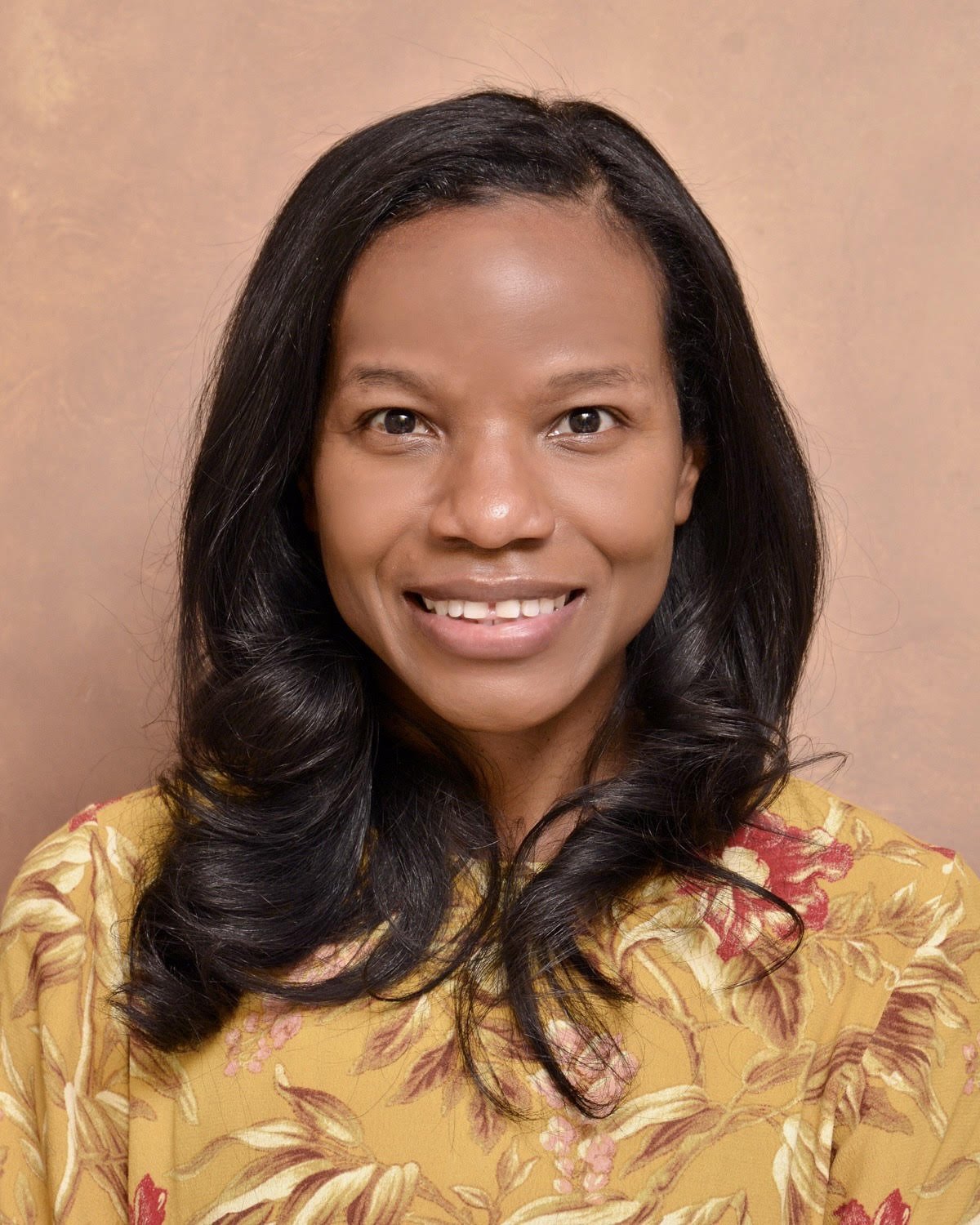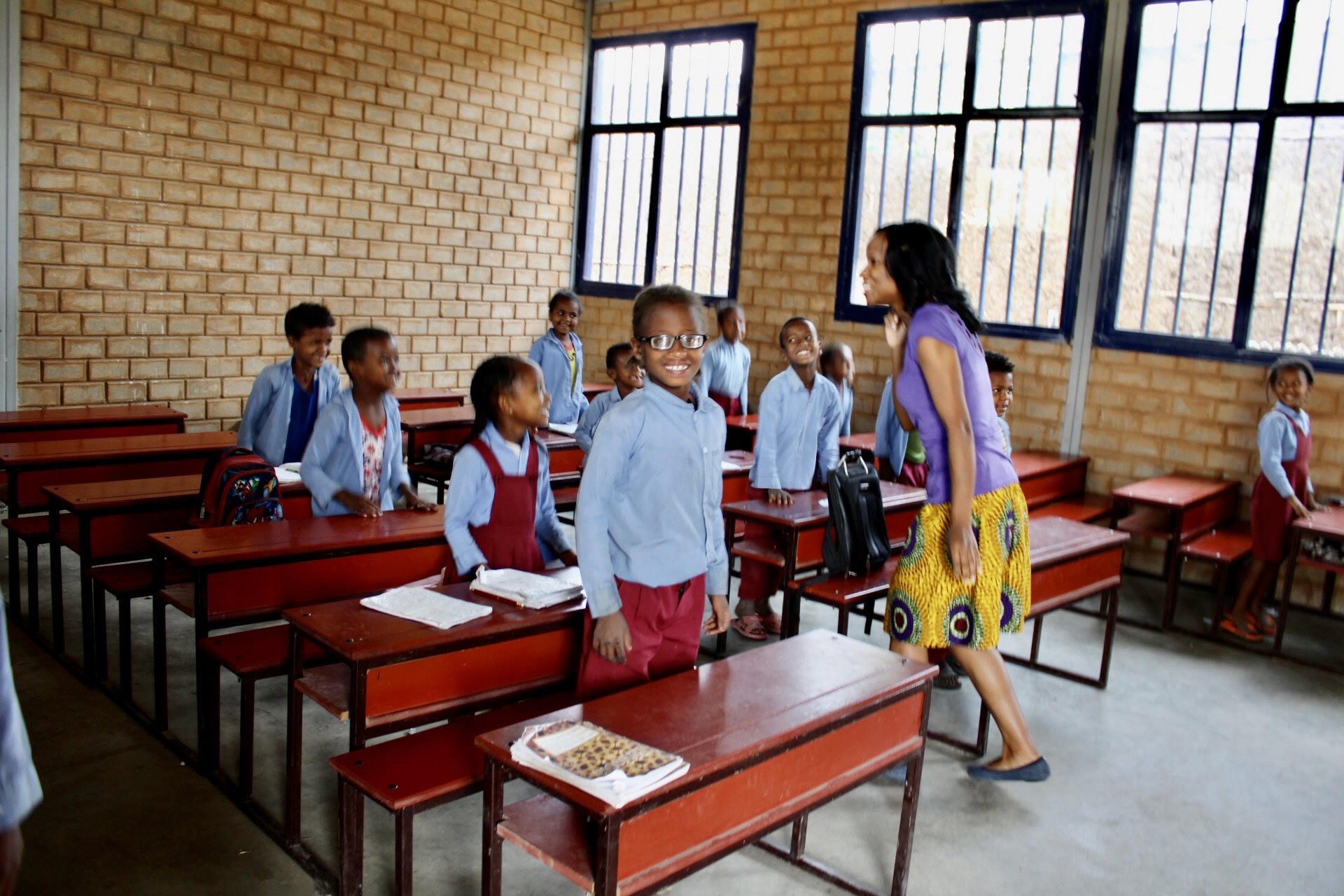Why LaTesa Hughes Decided to Pack Her Bags & Leave It All Behind
Hi BEF Readers! Melkam Meskel to all the Ethiopian and Eritrean Orthodox Christians who celebrate this religious holiday!
Before we move onto this week’s post, I wanted to re-share some information that may have been buried in a previous post. Recently, I’ve gotten a few inquiries about where the weekly blog posts are: they haven’t gone anywhere! They’re just bi-weekly now, as I mentioned here. That small adjustment was very much needed for a better work-life-play balance.
This week, I’m thrilled to share a story from an inspirational woman, LaTesa “Tesa” Hughes. Tesa is an American trained veterinarian, adult educator, and former National Institute of Health employee who decided to leave it all behind in the United States four years ago to follow what she knew was her “calling from God.” She moved to Ethiopia to establish an education non-profit organization in Debre Zeyit: the city where she now lives.
I recently sat with Tesa to learn more about her story. How does someone with no prior ties to a country leave the comforts of the West by choice to move somewhere there’s unreliable electricity and running water? Read her interview below to learn more.
The inspirational LaTesa Hughes
What is your professional background and training?
I went to veterinary school and received my doctorate in veterinary medicine. After my residency, I began to work at the NIH. While at my previous job, I also became certified to teach English for speakers of other languages: I became a Master Trainer through the Association for Talent Development in Virginia. Essentially, I train people to train others.
What do you currently do in Ethiopia?
Currently, I'm the Founder and Director of All Children Count which is an NGO I founded in late 2020. All Children Count was birthed out of the COVID-19 shut down because of the lack of educational support for children who live in underprivileged areas in Ethiopia.
Through our training, we focus not only on the child but also the child's teacher by training teachers to become better educators. We provide English classes for the children and for the teachers. We also provide student support, uniforms, school supplies, and develop curriculum for some schools. That's the main thing I'm doing right now. I also manage a children's library. We opened the first children's community library here in Debre Zeyit in October 2021. Every Saturday, we have a special program (English story time with a craft activity), and afternoon (Amharic story time with a craft activity). We also have books in English, Amharic, and Oromo.
What was scariest about moving to Ethiopia to follow this passion?
I knew this is what I was supposed to do. I prayed about it, I sought counsel from people I trusted. So I didn’t have much fear, but I did have a lot of anticipation and curiosity — What would my life be like when I get there? What'll be the new normal for me? Where am I going to get my hair done? What kind of food am I going to eat with my picky eating habits?
I just didn't have a full picture. I knew I'd be teaching English at the church for some ministers but that was about it! Moreover, I wondered what my life would look like doing something completely different from my professional job as a veterinarian.
Lastly, I wondered if I’d be able to build a community around me. Essentially, I was taking a leap to be on my own in a country where I don’t speak the language or know anyone. I really didn't know a single person aside from the pastor from my church (who first introduced me to Ethiopia).
What was a pivotal moment for you? When did you decide to take a leap of faith?
I took two visits to Ethiopia over the course of two years. The first visit was very idyllic – we had running water, electricity, phone connection and all the perks of modern day living. I didn’t realize this wasn’t the reality.
During my second visit, I got a more realistic picture of what life in Ethiopia could be like. I didn't have constant water access. The power kept going off. The phone wasn't working. I couldn't get internet access reliably. I had to use the bathroom with just the hole in the ground. I asked myself, “Is this the reality?” The highlight was when a car I was in got stuck at the top of Entoto mountain. We were going up and didn't realize it the road was blocked. Trying to get back down, we got stuck. There were just a lot of things I didn't see the first time.
However, this reality fortified me and made me realize I can deal with these things. I knew my purpose and these inconveniences were not a deal-breaker for me. After that, it solidified my motivation to move. I knew it wasn’t going to be a bed of roses, but that if I had experienced the worst of it during this trip, I’d be able to adapt.
What's the most gratifying thing about what you're doing now?
Mainly, it’s seeing the fruits of my labor. Seeing how things are flourishing now and seeing that I’m able to have an impact is huge to me. Sometimes, you go through life working and you don’t actually see the benefit. Here, I am engaging with teachers, seeing the smiling faces of children, seeing them go to school, seeing their imagination being sparked by different books: that’s encouraging and extremely motivating. It affirms my decision and the path I took.
Can you share an anecdotal story with us of your impact?
There are so many but the most personal one for me is about the former security guard at my house. He’s a parent to children in our community and at the beginning, his kids weren't in school because he couldn't afford the fees. (Note: While there are public schools in Ethiopia, parents still have to pay a modest fee of 1,000 to 1,2000 birr – approximately $19– for uniforms and other school supplies.) My guard had made a decision not to send his children to school because of these fees.
After a few serious conversations, he reluctantly agreed to send them. We worked together to find his kids a good school. The summer before school started, we realized the kids needed to learn either Amharic or English prior to the start of school so we split up this responsibility. He taught the kids Amharic while I worked on English. This was two years ago.
Today, these kids communicate with me in English and though their skills may still be Beginner level, I feel the greatest, most indescribable joy watching them flourish. Just having a small part in their growth is a blessing. To me, it’s easy to say, "Ok, I’ll teach you English so you can go to this good school..." but to them, it's a big thing. And hopefully, this unlocks a generational pattern of education and school.
My former guard has now become a bajaj (local motorcycle) driver who encourages other drivers to send their children to school. The ripple effect is amazing and that’s the kind of impact you see doing this work.
What lesson can you impart upon others through your experiences?
In general, I always tell people “see how you can help others because it’s going to ultimately end up helping YOU.”
In American culture, we can be pretty self-absorbed and focus only on ourselves. So I challenge people to get outside of themselves and look around. See the needs around you and just ask yourself “How can I meet those needs? Can I meet any of them to help people?” Thinking this way, is ultimately going to help you in your journey towards fulfillment.
Sometimes when we think about ourselves too much, that's when we get depressed and down because you begin to see and say “I don't have this. I don’t have that.” You have to look around. You have to look outside of yourself and outside of your world so you don't focus on yourself so much.
The second piece of advice I’d give is to seek wise counsel. Get wise counsel from level-headed people who won’t try to persuade you either way, just people who you know care about you. When I moved here, I sought God’s voice first and knew he was telling me to move here. But I also talked with people whose counsel I trust. I spoke with my pastor. I spoke with my mother. When you're making major moves or doing anything transformative, I think it’s important to talk to people you trust who would give you wise information and feedback, encouragement, correction, whatever it is. I sought sound advice from the people who care and know me most, and in turn, I got the tools I needed to solidify my decision and make this huge leap.


